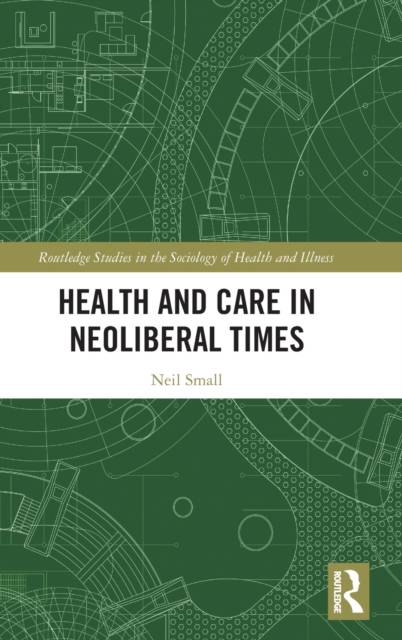
- Afhalen na 1 uur in een winkel met voorraad
- Gratis thuislevering in België vanaf € 30
- Ruim aanbod met 7 miljoen producten
- Afhalen na 1 uur in een winkel met voorraad
- Gratis thuislevering in België vanaf € 30
- Ruim aanbod met 7 miljoen producten
Omschrijving
This book argues that neoliberal changes in health and social care go beyond resource allocations, priority setting and privatisation, and manifest in an invidious erosion of the quality of our social relationships, including relationships between care provider and care recipient.
Critically examining the concept of culture and why shifts in what is considered "acceptable practice" happen, the book explores the conduct of conduct. It draws together what we know about neoliberalism's impact on the economy and public services with research around governmentality and social change. Looking at breakdowns in the quality of care in the NHS and social care across a range of settings it holds that macro influences, such as austerity and marketisation, cannot explain everything and many of the damaging things that go on in care breakdowns occur in micro-interactions between care provider and care recipient. Analysing the interactions between the calculations of political centres, the strength of professional identities, the effectiveness of oversight and supervision and the biographies of protagonists, Neil Small problematises the focus on culture, and culture change, in our response to care failures and examines what a different approach to care might involve.
Exploring the interaction of politics, economics and social change and their impact on health care and the wider welfare state, this is an important contribution for students and researchers in health and social care, sociology, political science and management studies.
Specificaties
Betrokkenen
- Auteur(s):
- Uitgeverij:
Inhoud
- Aantal bladzijden:
- 234
- Taal:
- Engels
- Reeks:
Eigenschappen
- Productcode (EAN):
- 9781032365145
- Verschijningsdatum:
- 17/02/2023
- Uitvoering:
- Hardcover
- Formaat:
- Genaaid
- Afmetingen:
- 156 mm x 234 mm
- Gewicht:
- 521 g

Alleen bij Standaard Boekhandel
Beoordelingen
We publiceren alleen reviews die voldoen aan de voorwaarden voor reviews. Bekijk onze voorwaarden voor reviews.











